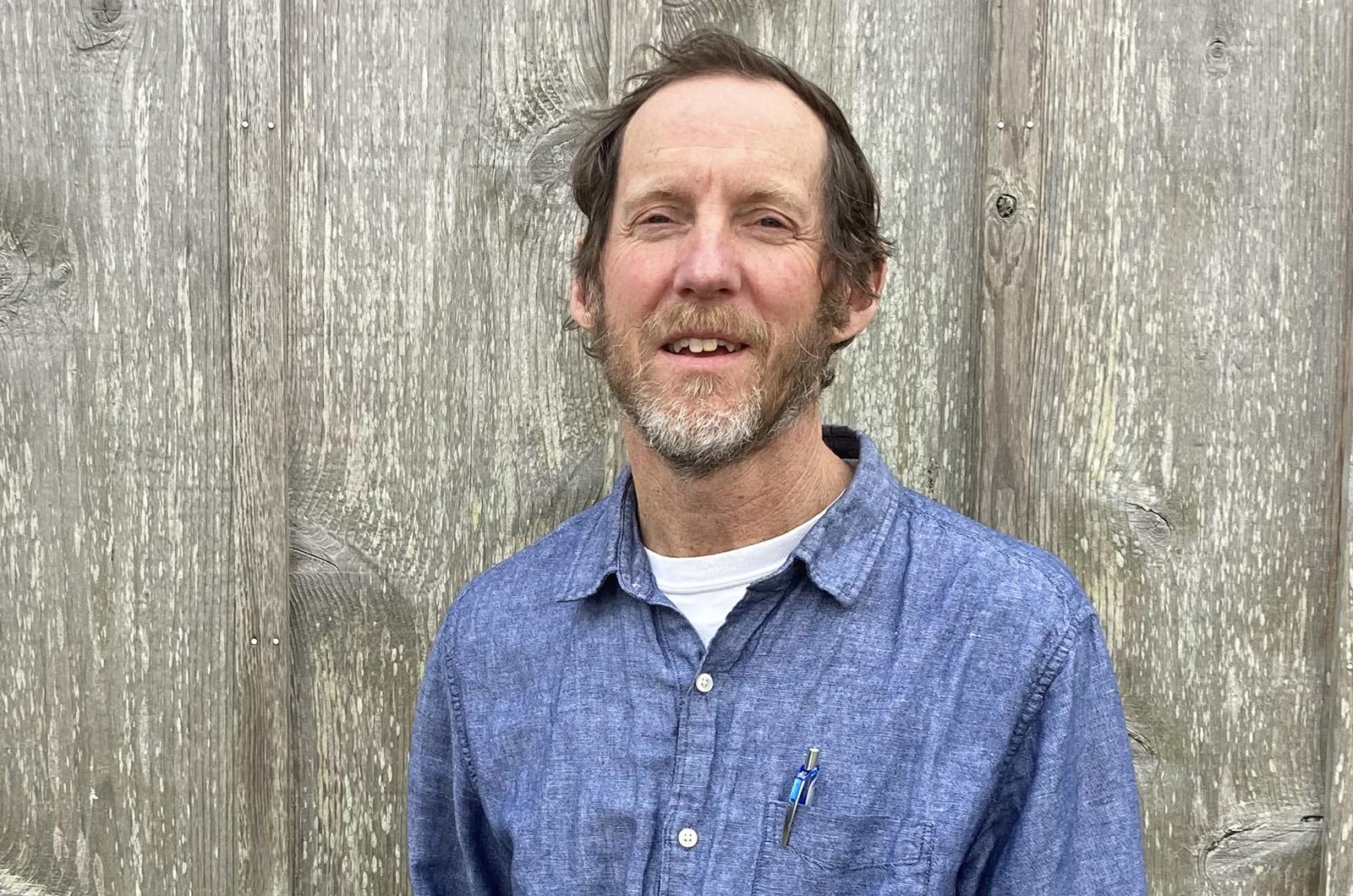The remote and close-knit community of Chappaquiddick is getting a new year-round resident this spring, but Joseph McLaughlin knows better than to call himself a local. After 18 years managing coastal properties on Aquidneck Island in Rhode Island, he said he has learned a thing or two about island social hierarchies.
“I know if you weren’t born there, you’re not a local,” he said. “But what I do know is that if you get to know the community, you can be a part of it.”
For Mr. McLaughlin, getting to know the community is baked into the job description. This spring, he takes on the role of beach operations manager at the Trustees of Reservations, where he will live and work on Chappaquiddick full-time overseeing the organization’s ever-changing Cape Pogue, Wasque and Leland Beach properties.
Trustees Islands director Darci Schofield first previewed the position last fall amid a series of contentious hearings regarding the organization’s new beach management plan and the future of its oversand vehicle program. Earlier this week, the Trustees officially announced that Mr. McLaughlin will be assuming the role this spring, reporting to Ms. Schofield.
The announcement comes as residents and former employees accuse the Trustees of neglecting its relationship with the local community; earlier this year, the organization laid off one of its Vineyard-based full-time employees.
In a phone call with the Gazette Wednesday, Mr. McLaughlin shared his plans for the position and for the properties that have kicked up a sandstorm of local discourse in recent years. When he arrives this spring, he said his initial order of business is to listen and observe.
“It’s important to observe how everything is functioning before you start to make educated changes, and not just make changes for changes’ sake,” he said.
The Trustees’ properties of Cape Pogue, Leland Beach and Wasque are known as much for their beauty as they are for their vulnerability to erosion and frequent winter storms. Living on-site, Mr. McLaughlin will bear first-hand witness to the wind, rain and other extreme weather of the area, he said. He will also be the first point of contact for Vineyard residents and visitors each with their own ideas of how the land nonprofit should balance its dual missions of conservation and recreation.
On one hand, abutting residents have advocated — and in some cases sued — to restrict oversand vehicle access on Cape Pogue, the furthest and slimmest tip of Chappaquiddick. Fishermen and beach access advocates, on the other hand, have argued to preserve historic levels of vehicle access as much of the Island’s shoreline falls under private ownership.
Mr. McLaughlin declined to take sides, and said he hopes to serve as a bridge builder between the two camps.
“I’m trying to meet in the middle and help people realize the landscape is always changing,” he said. “It’s difficult for humans to get our heads around that and understand that what we have now will be different tomorrow. We have to adapt to that.”
Mr. McLaughlin also begins his role as the Island’s endangered shorebirds begin to nest in the fragile dunes. Come April, the properties will need to be properly nourished, labeled and fenced to make way for the arriving piping plovers, oystercatchers and other endangered or threatened species that call Chappaquiddick home.
That part is nothing new for him. Prior to joining the Trustees, Mr. McLaughlin served as properties director for the Norman Bird Sanctuary on Aquidneck Island, R.I., where he oversaw conservation efforts as well as educational programming. Growing up on the shores of Long Island and the forests of upstate New York, he said he felt an early connection to the outdoors, bolstered by a lifetime love of science.
“Science is really the only thing that moves me or interests me in a meaningful way,” he said. “It inspires me — the simplicity and complexity of nature.”
When he’s not working where he lives, Mr. McLaughlin plans to live where he works, enjoying fishing, bike riding and other beachside activities that make his new living quarters such a sought-after destination. What he hopes to preserve, he said, is the untouched feeling he gets in secluded, far-off places like Chappaquiddick, where all you can hear is breeze and bird chatter and all you can see is the wide expanse of sea and sky.
“[Humans] are everywhere,” he said. “It’s nice to have some place where we can step back and just feel disconnected from technology and infrastructure.”






Comments (5)
Comments
Comment policy »